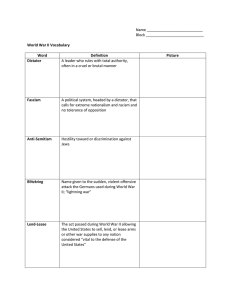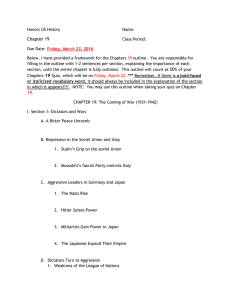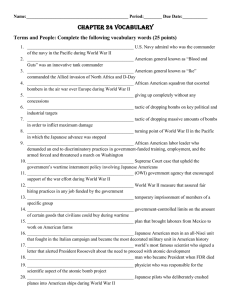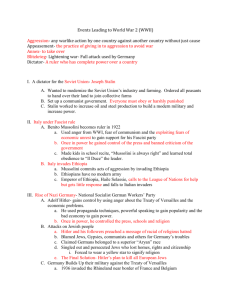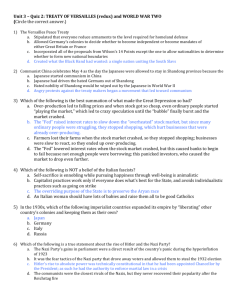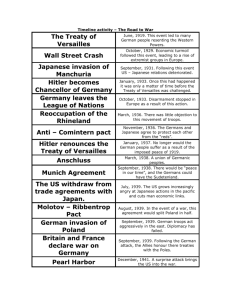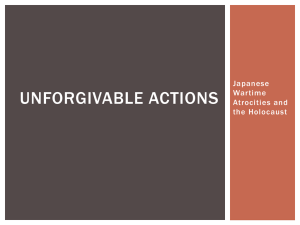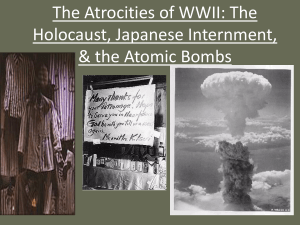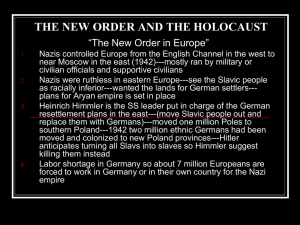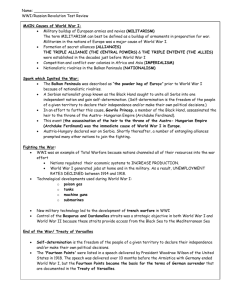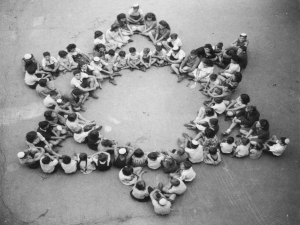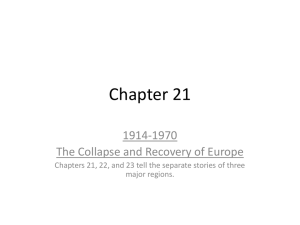Japanese Aggression and Dictators in Europe
advertisement
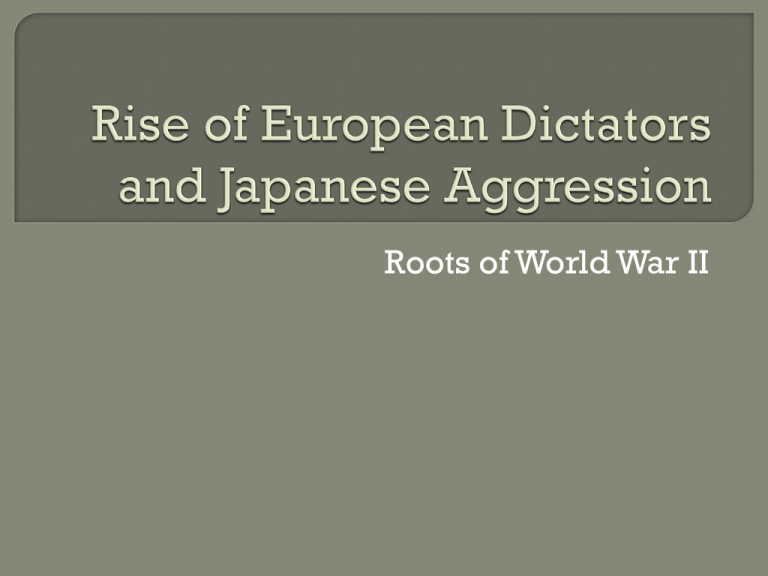
Roots of World War II Japanese society: • Was seen as a global power • Growing industrialized economy - society changing from rural farmers to urban industrial • Universal Education was in place – caused want for democracy • Lacking of natural resources to maintain industrialized nation • Hurt by: Economic downturn Great Depression Tariffs set by other nations on their exports • Military influence was growing and the desire to expand was present as well • Western fashion was spreading Many of these things was against the old guard and military leadership How did this military influence grow in Japan? • Economic Crisis caused panic – military was seen as stability • Weak central government angered the people Made treaties that weakened Japan Let allies make them look like fools and humiliate them – U.S. barring Japanese immigrants • People liked their vision of a strong and unified Japan that was reliant on itself and basking in the glory of an emperor with a strong military to protect their interests Why the need for military shows aggression? • Military became bigger than government or civilian control – weak central government with major problems • They promoted a fighting spirit of no surrender no retreat • Lack of resources drove them to look for more • Loss of Navy made them feel vulnerable A nationalist group of military worked to take government • Assassinated many of the heads of the Japanese government Manchurian Incident (1931) – Japan invades region in northwestern China to get resources Signing the Anti-Comintern Pact (1936) – made alliance with Hitler’s Germany Second Sino-Japanese War (1937) – War between Japan and China because of Japanese Aggression • Proposal of Greater East Asia Co-Prosperity Sphere (1940) • Nanjing Massacre – Murder rampage killing of 100,000 Chinese men, women, and children Seen as Japanese attempt at Empire These events lead to heightened tensions globally Where: Italy His belief: Fascism – Authoritarian government where the good of the nation is put above anything else, and the nation is aggressive and ruled by a dictator When did he come to power: 1922 • March on Rome – this event showed the power of Mussolini’s fascist regime How did he maintain control: Used propaganda to influence people’s thoughts, feelings, and behavior Act of Aggression: Invaded Ethiopia in 1935 Where: Russia/Soviet Union When: 1924 Beliefs: Make Soviet Union a totalitarian state – Control people • Five Year Plans – Way to strengthen Soviet economy • Had goals for production Business and industry is controlled by government Collectivization of farms – increase farm production by combining small farms into large units that produce government required crops • Punish or kill those who disobey • Gulags built to hold criminals Major Events Famine of 1932 – starvation of many in country and Stalin refused aid – need to survive on own • Great Purge – got rid of those in government seen as against Stalin – they were executed • Where: Germany When 1933 Reasons for Rise: Weakness of Weimar Republic Government – put in place after World War I by Allies • Treaty of Versailles impact on Germany’s country, economy, and dignity • Poor state of the economy • His ability to be a great public speaker – motivated and inspired the people • Railed on the Jews, Treaty of Versailles, and government – basis of his book Mein Kampf Beliefs: Germans were the master race – Aryans • Might of military and pride of German army • Jews were the problem in Germany • Treaty of Versailles was unfair and a source of embarrassment for Germany • Anti-Semitism – hatred and discrimination of Jews Nuremberg Laws – created separate legal status for Jews • Kristallnacht – Night of Broken Glass occurred on Nov. 9-10, 1938 and were riots that destroyed Jewish businesses and places of worship and killed nearly 100 Jews •
